Heba Saadeh
Healthcare Knowledge Graph Construction: State-of-the-art, open issues, and opportunities
Jul 08, 2022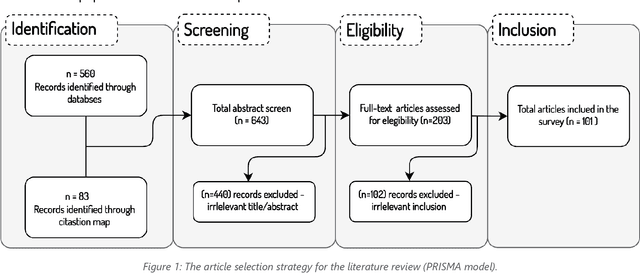
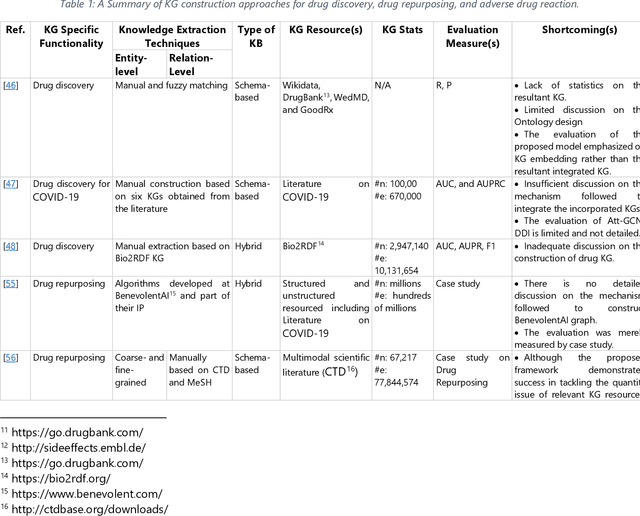
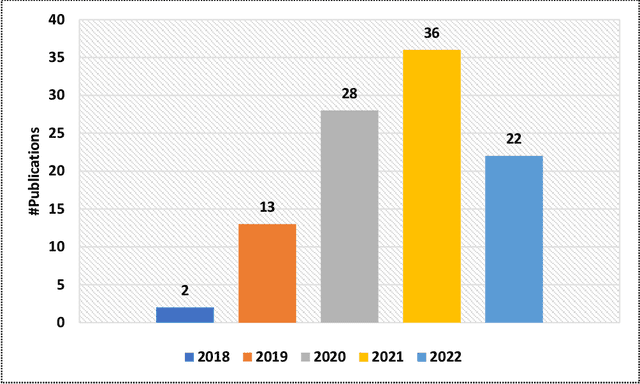
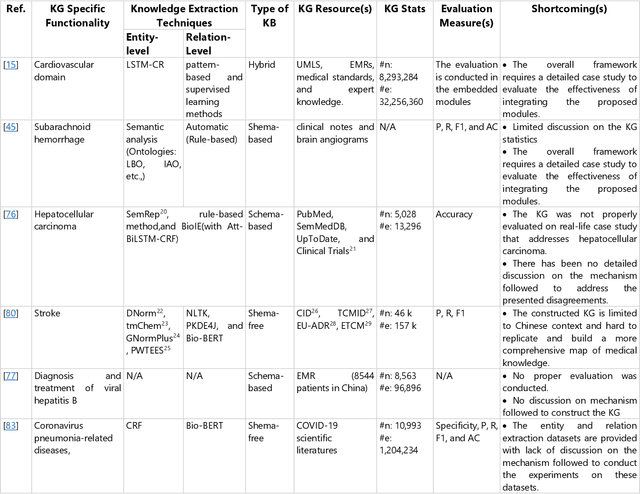
Abstract:The incorporation of data analytics in the healthcare industry has made significant progress, driven by the demand for efficient and effective big data analytics solutions. Knowledge graphs (KGs) have proven utility in this arena and are rooted in a number of healthcare applications to furnish better data representation and knowledge inference. However, in conjunction with a lack of a representative KG construction taxonomy, several existing approaches in this designated domain are inadequate and inferior. This paper is the first to provide a comprehensive taxonomy and a bird's eye view of healthcare KG construction. Additionally, a thorough examination of the current state-of-the-art techniques drawn from academic works relevant to various healthcare contexts is carried out. These techniques are critically evaluated in terms of methods used for knowledge extraction, types of the knowledge base and sources, and the incorporated evaluation protocols. Finally, several research findings and existing issues in the literature are reported and discussed, opening horizons for future research in this vibrant area.
An Approach for Time-aware Domain-based Social Influence Prediction
Jan 19, 2020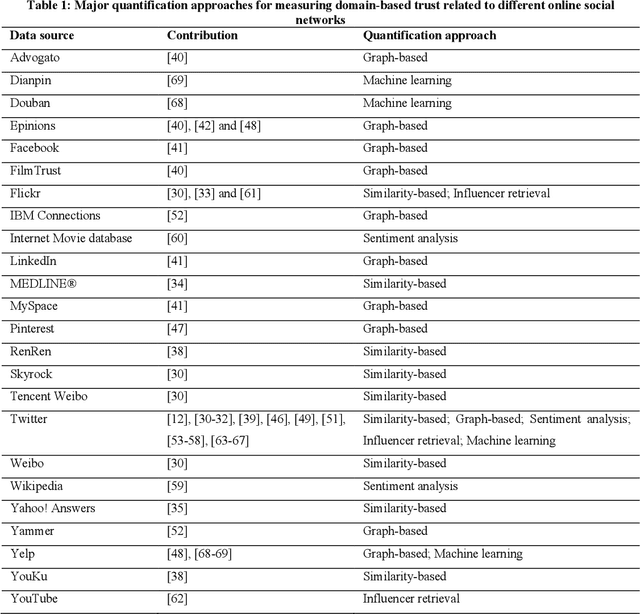
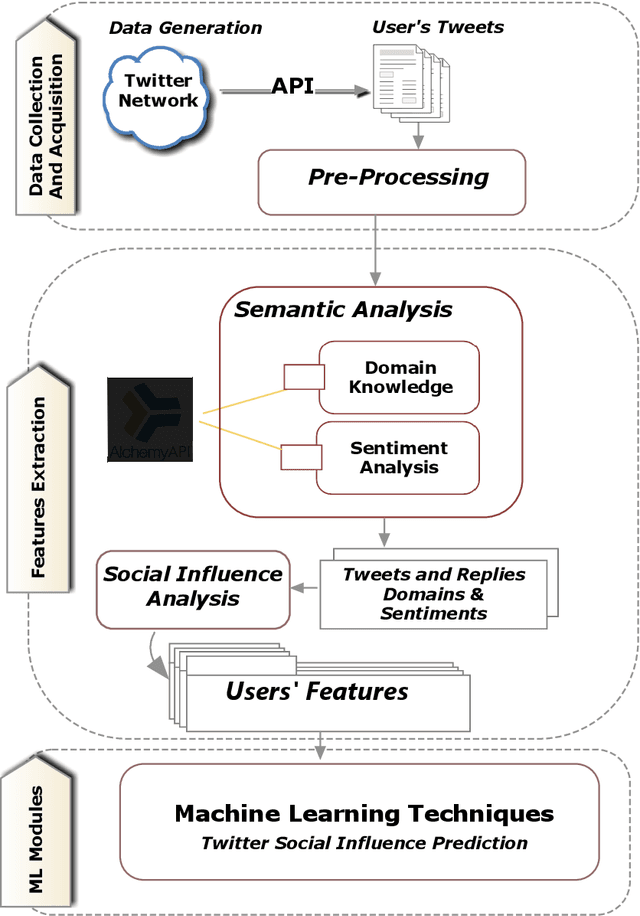
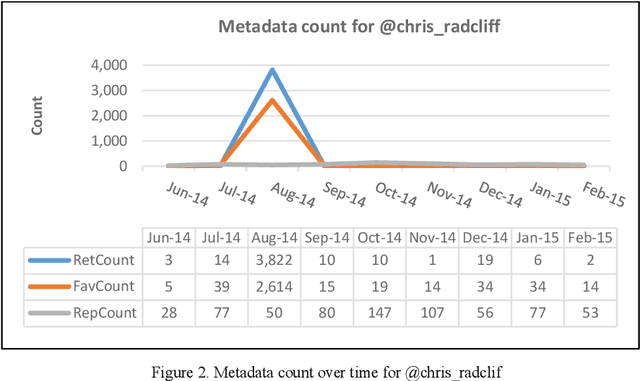
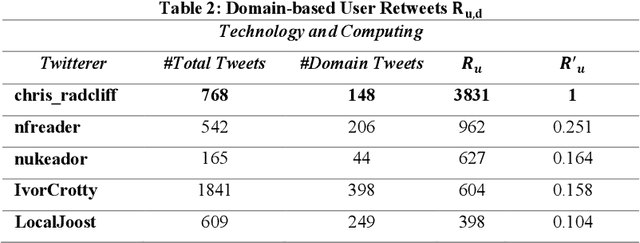
Abstract:Online Social Networks(OSNs) have established virtual platforms enabling people to express their opinions, interests and thoughts in a variety of contexts and domains, allowing legitimate users as well as spammers and other untrustworthy users to publish and spread their content. Hence, the concept of social trust has attracted the attention of information processors/data scientists and information consumers/business firms. One of the main reasons for acquiring the value of Social Big Data (SBD) is to provide frameworks and methodologies using which the credibility of OSNs users can be evaluated. These approaches should be scalable to accommodate large-scale social data. Hence, there is a need for well comprehending of social trust to improve and expand the analysis process and inferring the credibility of SBD. Given the exposed environment's settings and fewer limitations related to OSNs, the medium allows legitimate and genuine users as well as spammers and other low trustworthy users to publish and spread their content. Hence, this paper presents an approach incorporates semantic analysis and machine learning modules to measure and predict users' trustworthiness in numerous domains in different time periods. The evaluation of the conducted experiment validates the applicability of the incorporated machine learning techniques to predict highly trustworthy domain-based users.
 Add to Chrome
Add to Chrome Add to Firefox
Add to Firefox Add to Edge
Add to Edge